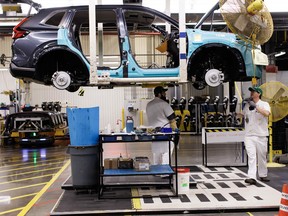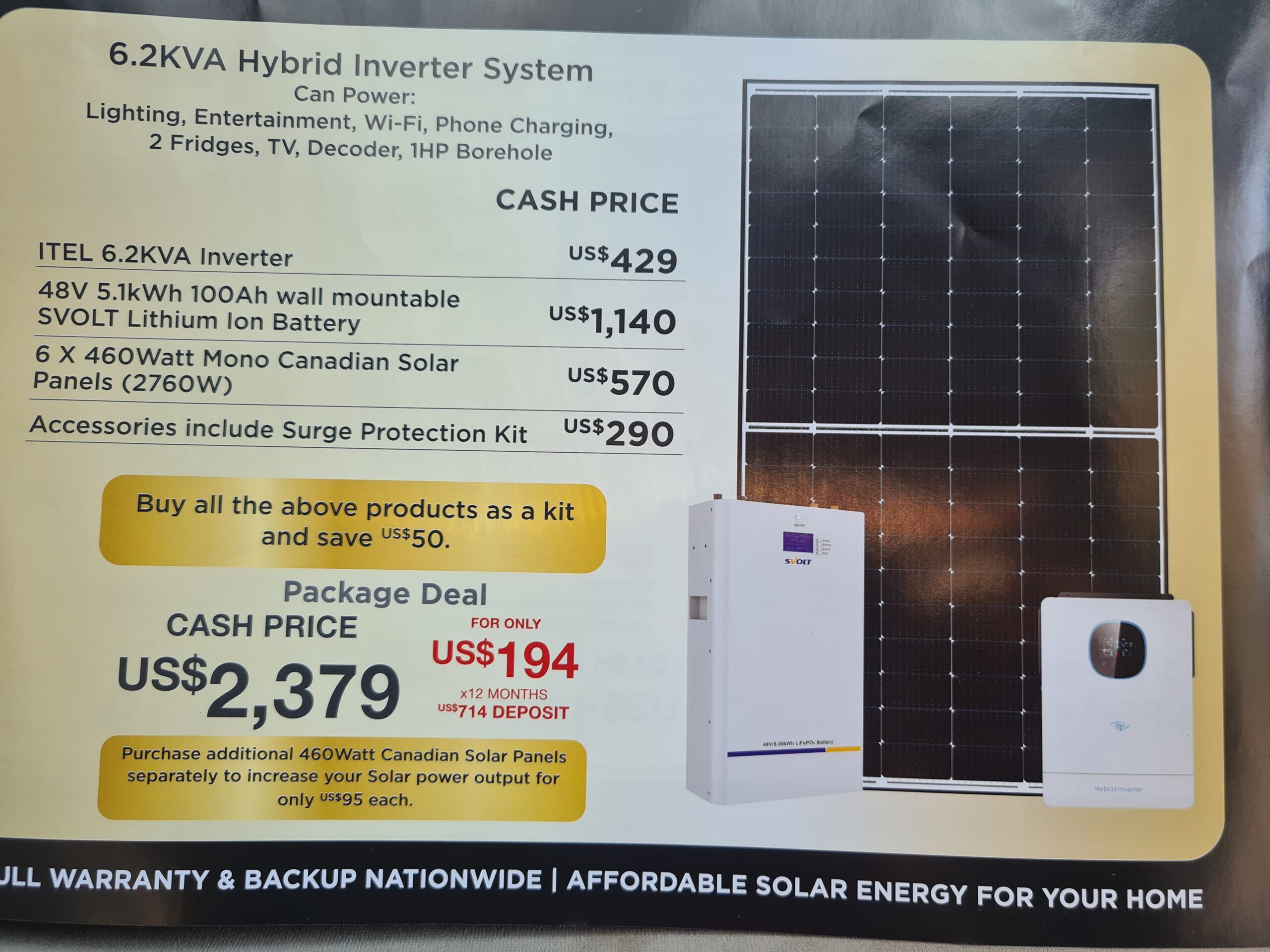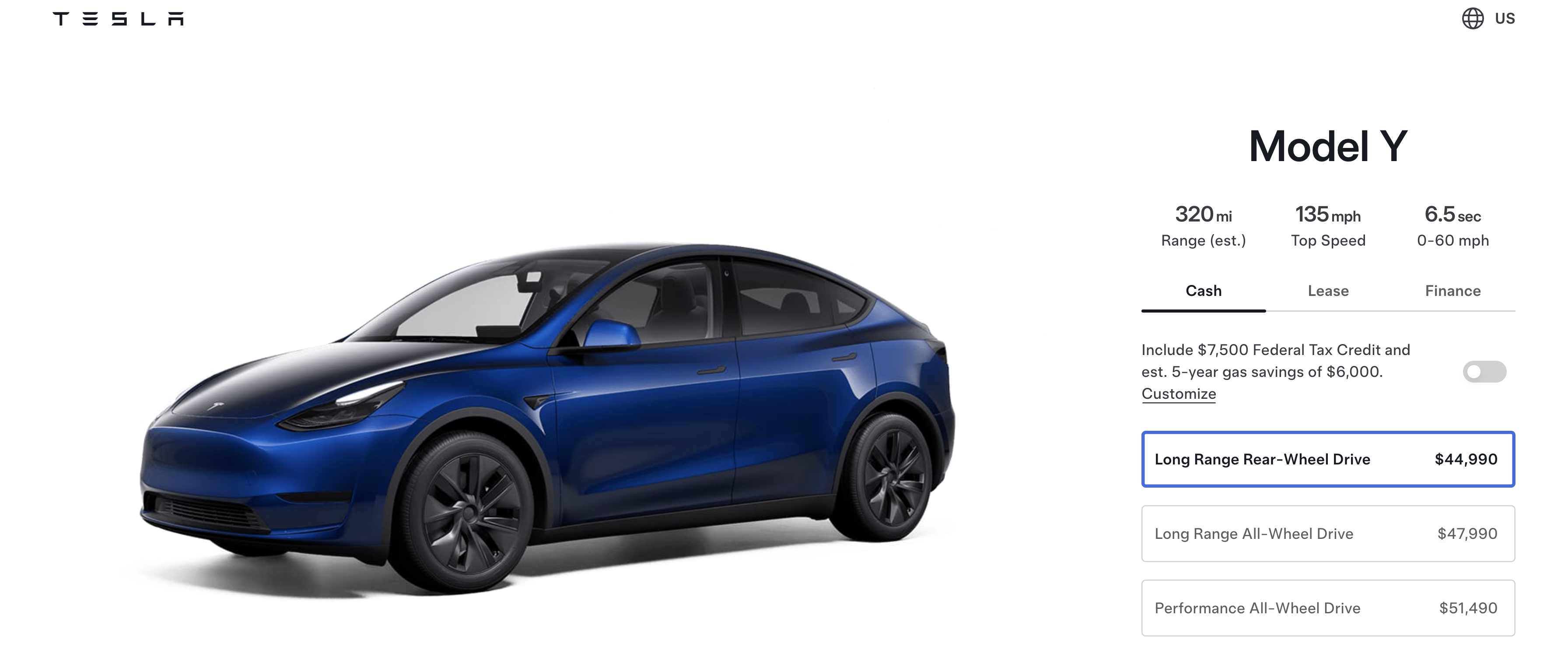Ottawa to negotiate with Honda over potential new EV battery plant in Canada
Bloomberg News
Brian Platt and Mathieu Dion

The Honda CRV production line at a manufacturing plant in Alliston, Ont., 2023. PHOTO BY COLE BURSTON/THE CANADIAN PRESS FILES
Last year, Trudeau’s government signed three unprecedented contracts to match production subsidies being offered to companies in the US. The numbers were big: as much as $15 billion for Stellantis NV, $13 billion for Volkswagen and $4.6 billion for battery-maker Northvolt AB. Provincial governments in Ontario and Quebec are picking up part of the cost.
But subsidies of this kind will become less central to Canada’s EV manufacturing strategy, the industry minister promises. Having secured so-called “anchor investments,” Canada is turning its attention to building out a broader EV supply chain, said Industry Minister Francois-Philippe Champagne.
“What we did in 2023 was to seize the moment,” Champagne said in an interview with Bloomberg News. “There’s only going to be one Volkswagen gigafactory in North America. There’s only going to be one Northvolt factory in North America.”
But he said there’s a difference between what Canada had to do initially to keep pace with the U.S., and what it needs to do over the longer term.
“Over time, because the ecosystem is getting stronger and stronger with each of these investments, you could transition the type of support you’ve provided more to something akin to a tax credit,” Champagne said.
The battery plant deals were highly unusual for Canada because in order to match the US Inflation Reduction Act, they subsidize the actual production of the factories — essentially offering money for each battery the plant makes. They were a departure from Canada’s usual practice of offering money to auto companies for capital spending projects — though last year’s subsidy packages included those, too.
The price tags of the subsidies have been criticized by some, especially with signs consumer demand for EVs is flagging. In Germany, for example, EV sales are expected to decline in 2024.
Yet those deals have also boosted Canada’s global standing in the industry, with BloombergNEF now ranking Canada in first place in battery supply chain manufacturing, surpassing China.
Going forward, Canada plans to offer manufacturers tax credits, unveiled in last year’s budget. They have yet to be finalized, but include a “clean technology manufacturing” credit that would equal 30 per cent of the capital cost of eligible property.
“There are still a few big decisions to be made by major manufacturers, but you’ve seen already pretty much where people are going to put their assets to serve the North American market,” Champagne said. “So it just makes sense to transition to an investment tax credit, which is then available to people who want to come to Canada.”
Champagne did not comment directly on the talks with Honda, which were first reported by Japanese news outlet Nikkei earlier this year. Canadian Finance Minister Chrystia Freeland and other government officials met with Honda in January.
Honda’s plans for Canada, according to people familiar with the issue, may include not just an expansion of their existing manufacturing facilities in the province of Ontario, but potentially a new battery assembly plant and larger supply chain that stretches into neighbouring Quebec. But there’s no assurance a deal will be done.
Government officials said Honda’s interest in Canada is focused on the country’s critical mineral deposits and low-emissions electricity grid. Still, industrial subsidies will no doubt play a role — raising the question of whether Canada can land the investment without signing another rich production subsidy contract.
Champagne did not rule anything out, but he said it’s always been clear the government has a “limited capacity” to match U.S. green-manufacturing spending. Trudeau’s government is also trying to restrain spending to keep inflation in check and allow for the Bank of Canada to start cutting rates later this year.
Some government officials believe the production subsidies offered to Volkswagen, Stellantis and Northvolt will ultimately cost much less than the sensational headline figures, since those are based on the assumption the plants will have no construction delays and operate at full capacity throughout the contract.
Champagne agreed the contracts will likely be less expensive in the end. But the larger point, he said, is that those plants will ensure that a large EV supply chain exists in Canada, which is why other automakers are looking at investing here.
“Canada is going to be one of the very few jurisdictions in the west where you have basically the full value chain around the battery ecosystem, and that is not lost on investors,” he said.
Share This:




